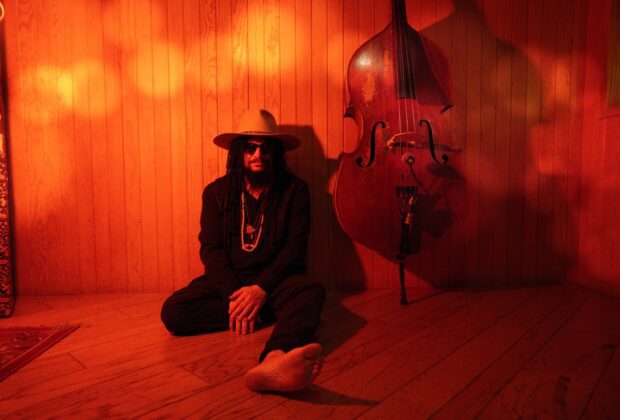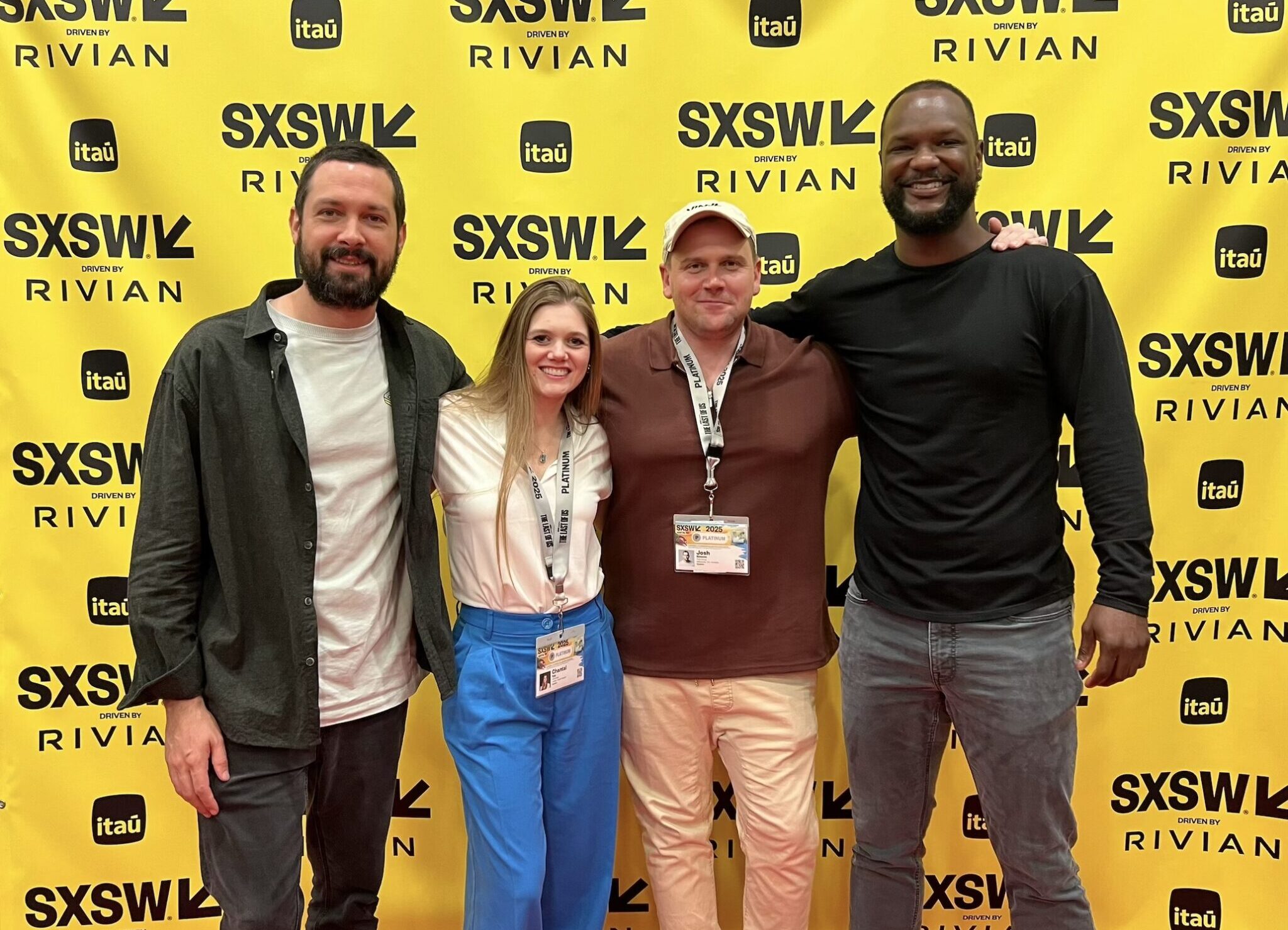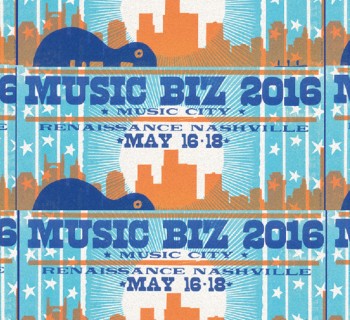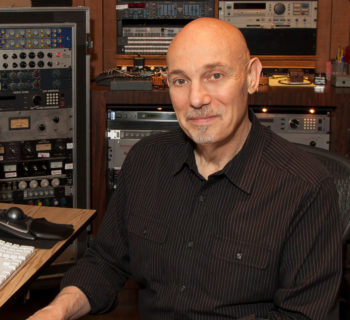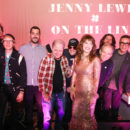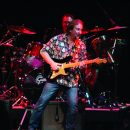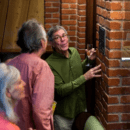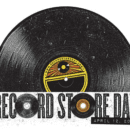With apologies to James Brown, the hardest working man in showbiz during the past few decades is dreadlocked and often barefoot, perpetually sporting a hat and sunglasses inside. With his multi-hyphenate roles as producer, performer, composer, record company executive, music director, radio host, and more, Don Was has become a contemporary music Forrest Gump—or, if you prefer, Zelig. He’s seemingly everywhere and is often attached to some of the coolest and most significant projects and with some of the biggest names—up to and including The Beatles, The Rolling Stones, and Bob Dylan. A proud product of Detroit, where he hosts a weekly radio show (Don Was Motor City Playlist on WDET-FM) and an annual all-star event at the city’s Concert of Colors, Was (nee Fagenson) launched the beloved, boundary-free band Was (Not Was) with “brother” David Was (nee Weiss) during the late ‘70s, but really, he made a name for himself as a producer.
Starting with Bonnie Raitt’s comeback smash Nick of Time in ‘89, for which he won the first of his five GRAMMY Awards, Was has helmed career highpoints for the likes of the B-52’s and Was (Not Was), as well as six projects for The Rolling Stones and albums by Elton John, Iggy Pop, Willie Nelson, Ringo Starr, Roy Orbison, John Mayer, Brian Wilson, Zucchero, and many more. He’s worked on an array of movies and directed a documentary about Wilson: I Just Wasn’t Made for These Times. Was also shared an Emmy Award for the 2014 concert special The Night That Changed America: A Grammy Salute to The Beatles.
Since 2012, Was has been president of Blue Note Records, and since 2018 he’s been part of Wolf Bros with The Grateful Dead’s Bob Weir and drummer Jay Lane. As if all that hasn’t been enough, last year he launched the Pan-Detroit Ensemble, comprised of musicians from his hometown (including Was (Not Was) alumni Luis Resto, an Eminem collaborator, and Dave McMurray—also a Blue Note artist). And on top of all that, during the past six months Was also served as music director for two tributes to The Grateful Dead—at the Kennedy Center Honors and for the MusiCares Persons of the Year Gala. The dude has a full plate and then some, which makes it obvious to start any conversation by asking...
How do you do it all?
One time I read an interview with Frank Sinatra and it was at a time he was getting up at five in the morning and going to a movie set, and after he was done on the set he’d go to a studio in L.A., cut one song and then jump on a plane and do a Rat Pack show, then come back and recycle. They asked, “How do you do all that?” and he said, “Whatever you’re doing, just be 100 percent present for it—which is basically not a new idea. It’s “be here now.” That goes back thousands of years. But I fuck up (laughs). Stuff gets by me. But I surround myself with organized people.
How did you keep the weight of it all from getting in the way?
I don’t know. I meditate; I do TM twice a day, and I actually think that helps. I started doing it when I started working at Blue Note, and it absolutely makes a difference. It calms you down to work out every day, too. You just learn to deal with the stress. And, you know, we’re not sitting here curing cancer, and we’re not negotiating an armistice. We’re putting 10 pop songs on a CD or whatever the people are listening to while they do other things. Let’s be conscientious and do our best work, but I’m not sure it’s worth throwing a brick through the control room window.
Given everything you’ve done and accomplished, do you ever take a step back and even just go, “Wow...”?
Probably not enough. I certainly can appreciate it while I’m doing it. I have learned to take a step back and go, “Wow, look who I’m in the studio with” or “Look who’s over at my house.” And thankfully I haven’t become desensitized to that. But I don’t have a sense of it. I can’t look objectively at an overall career and think anything other than I’ve been really lucky (laughs). And I’m still trying to get better at it.
Is any one of these things you do harder than the others?
The record company was the largest adjustment. I didn’t have a background in working (laughs). My goal in life has been to never have a job. I never considered playing and making records to be a job; it’s something I would’ve done for fun. It took about five years to figure out how to be myself and be the president of a record company.
I’d start working on a song at 10 at night, sitting up in my bedroom, and it would be seven in the morning and I wouldn’t notice the time had passed.
What was your intent when you started way back when?
I’m sure it was just some goofy shit. I was 12 years old, I saw girls screaming for The Beatles on The Ed Sullivan Show; that was a profound moment for a lot of people my age. I don’t think it was any more than that—having fun, meeting girls, getting a leg up (laughs). Really, in retrospect, those are solid goals.
What was your path to the bass?
I started playing piano, then guitar. In my high school there were two keyboard players who were better than me, five guitar players—and no bass players. It started as a pragmatic move.
And producing?
It just kind of happens to you. I was fascinated by the idea, and I got this Lafayette recorder that you could overdub on—it was primitive, but it could let me do some overdubbing and sound and sound. And then it just kind of happens to you; I’d start working on a song at 10 at night, sitting up in my bedroom, and it would be seven in the morning and I wouldn’t notice the time had passed. I liken it to surfing; you wait for the wave, and when you catch it something happens to you that you can’t describe. You just get swept away.
The consensus among the artists you’ve produced is that you make them sound like them, which seems like a no brainer but is not the way producers always work.
What would be the point, otherwise? I would find it offensive, especially with the caliber of people I’m working with, to take over someone’s record. Why should someone else paint themselves into Bob Dylan’s portrait? That’s a lot of nerve. It’s not my job. I try to get to the essence of these people, but I don’t invent the essence. What I have to offer is that I can clear away some of the stuff that obscures who they are. I try to make personal records for the people I work with. I try to satisfy [the fans] without forcing the artists to go back and make nostalgia albums. But I also try to make records as a fan; I just assume that if I like it, other people will, too.
Nick of Time was the big breakthrough, of course. What’s your perspective on that album now?
I guess overall I see how brave Bonnie was to make a record like that. That was not the kind of album that women in rock ‘n’ roll were supposed to make at that point; you were supposed to pretend you were 18, and she wrote a very mature record actually dealing with aging. In retrospect it took a lot of nerve to go out there and put those songs together, and the response was pretty mind-blowing. I think it showed you don’t have to pretend to be a teenager to play rock ‘n’ roll.
Then right on its heels you helped make Cosmic Thing with the B-52’s.
Y’know something—it’s a pretty groovy record. I thought of them the same way I thought of Prince; they were a crazy, alternative R&B band, and it seemed very natural to work with them ‘cause that’s kind of what we were trying to do with Was (Not Was). “Love Shack” is basically “Cool Jerk” reworked, and with the grooves that they came up with and the grooves that Nile (Rodgers) laid down on his part of the album, it’s a pretty good R&B record—one of the craziest R&B records you’re gonna hear.
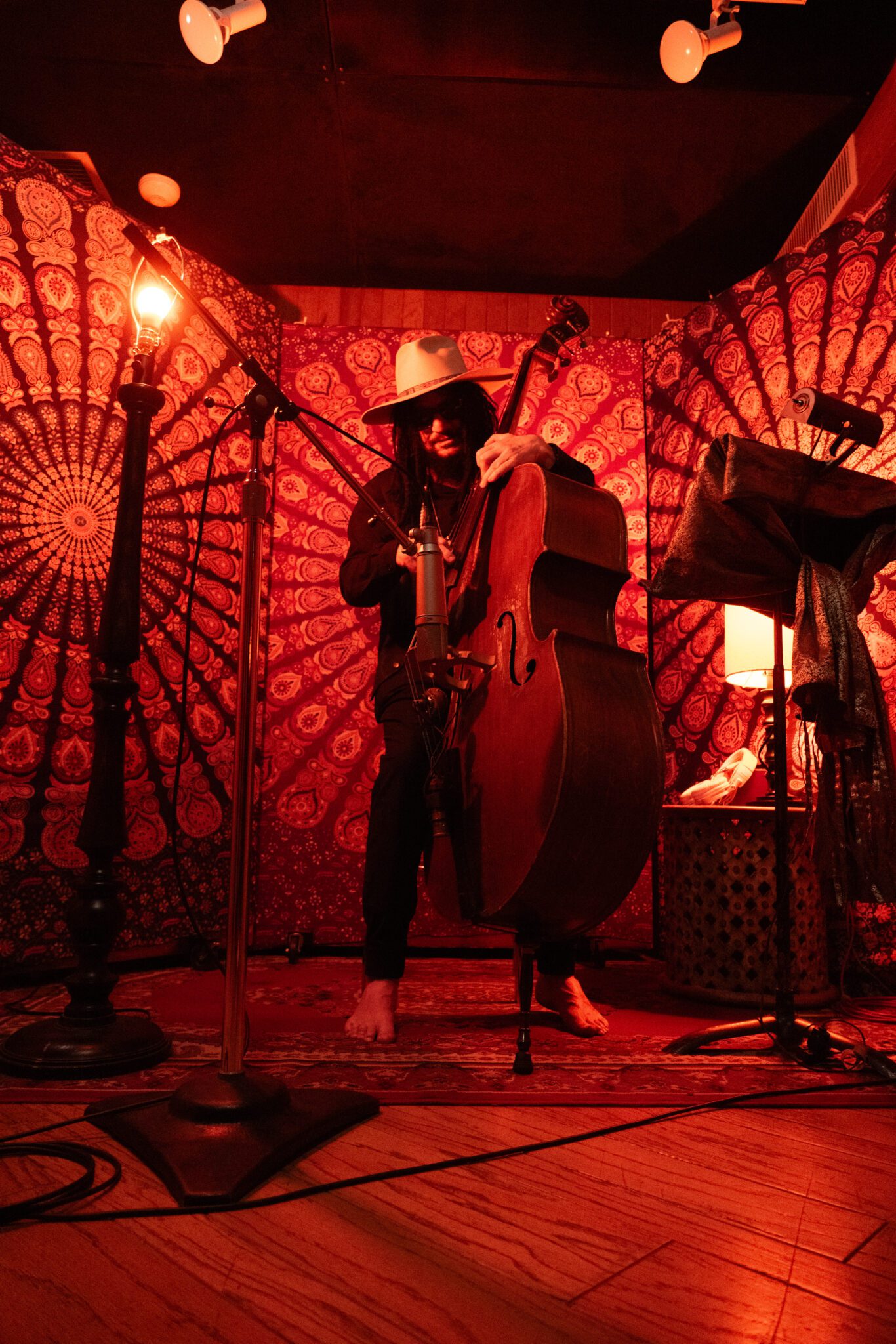
The biggest pinch-me moment so far?
Probably Dylan. He’s my hero, right? My dream was to get to play with him, which I’ve gotten to do a few times. You try to figure out how he could write these songs, man? How does this happen?! (laughs). And watching him do it up close has just magnified the mystery, which is great. He’s got some connection that even he doesn’t understand, to some higher consciousness. The truth is even more beautiful and enigmatic than you think. Getting up close to it has put me more in awe of it rather than inuring me to brilliance.
You’ve served as a Musical Director on many projects. How do you approach that kind of gig?
It’s an adventure, man. There’s a lot of stress, a lot of pressure and never enough rehearsal time. But you get the opportunity to work with people. When do you get to work with Sammy Hagar otherwise? It’s a great chance to play in the truest sense of the word play—not just play an instrument but play with some of the best musicians in the world.
Which ones have stood out in particular?
Certainly the Willie Nelson 90th birthday at the Hollywood Bowl (2023), which was two nights and a massive undertaking. We learned 55 songs and played two completely different three-hour shows on two consecutive nights. The Gregg Allman tribute in Atlanta (2014) was really powerful. I knew Gregg was terminally ill; he hadn’t talked about it, and someone had told Jackson Browne. We were doing a version of, I think, “These Days,” which Gregg actually recorded before Jackson did, ‘cause they were roommates in Hollywood. At one point I had this eye contact with Jackson; at that second, I knew that he knew, and he know that I knew, and we both kind of lost it. But it was a beautiful moment.
More recently, between Wolf Bros and Pan-Detroit Ensemble you’ve been on stage as much as if not more than in the studio. What accounts for that?
There’s something really intoxicating and addictive about standing on the stage and having your receptors open so that three or four times a night you can feel some external force start moving through your body, and you forget you’re holding a piece of wood. Your fingers just start moving by themselves, almost, and you can feel the audience respond and feel the energy come back, and the thing is cyclical and you can blow the roof off the motherfucker with that energy. It’s just too good. I can’t get enough of it. And I’m learning more about [bass] and getting deeper and deeper into it.
With Wolf Bros you’ve become part of The Grateful Dead universe—maybe not where you might have imagined you’d be, but certainly a loyal and, sorry, dedicated audience.
It’s the greatest. It’s really been a life-changing, wonderful experience to work with Bob. I’ve learned a lot from him. I’ve known him since the ‘90s; I introduced him to Mayer and I drove up with John when he went to play with [Dead & Company] in San Rafael. [Weir] called me in 2018 and he said Rob Wasserman came to him in a dream, and Rob’s the guy who introduced us in the ‘90s. In the dream Rob said the reason he introduced us was I was supposed to take his place in the band once Rob was gone. So [Weir] said, “You want to start a trio with me and Jay [Lane]?” I wanted to, definitely. And in the back of my mind I was thinking that I’m gonna learn something about approaching music with fearlessness that I’m going to be able to apply to every aspect of my life.
And that was?
To stop worrying about whether you’re making a mistake or anything like that, just play from the heart. Right before the gig I was worried about whether I could stretch out enough to accommodate all the directions [Weir] wanted to go. Working with [Weir] has taught me to stop worrying about extraneous other things, to just become the song, live well within the song and in it. I don’t think you ever master it. It improves incrementally. But you’re always chasing it.
Being president of Blue Note, with its tremendous legacy, is more than a job. It’s a responsibility. What’s it been like?
It’s a really… I don’t want to say it’s a hard job, but it’s kind of an all-consuming gig, not just for me but for everyone who works at the company. We could probably use three times as many employees—that’s across all the record companies, ‘cause everyone’s doing three jobs compared to what people did at record companies 30 years ago. So it’s hard to take a step back and look at the overall accomplishments. But the goal is to keep the music flowing. The thing that made Blue Note incredible as the trail of boundary breaking music that was recorded 70 years prior to my getting there, and the idea was to keep that going but not to have it be a museum piece, and to keep pushing the boundaries of music and make records with newer, younger artists who had fresh visions. And I think we’ve done that. I’m really proud of the records we’ve made over the last 13 years.
For those who knew there was a lot of love for Was (Not Was). What’s your perspective on the band now?
I’m proud of a lot of it. There just wasn’t enough time. I wish we could have stuck with it more. I wish we would’ve played more and kept going. I think we let certain obstacles discourage us. I think we lost our way, and with hindsight I can see how it wasn’t that hard to just root out the people who were whispering in our ears with the wrong message and the wrong directions.
Given how different the times are now, is a career in music like you’ve had still possible?
Yeah, absolutely. I think as long as there’s a room big enough to hold a band and some people and there’s a door and there’s someone at the door collecting money, you can earn a living doing it. There are all sorts of ways to earn a living, and new things pop up all the time. This is actually a very populist moment where you can record something in your bedroom and load it up for the world to see online. That’s a pretty incredible thing. And maybe you don’t need to be rewarded with a Ferrari; that doesn’t mean you can’t make great music and have a good life.
You have three sons, all making music in various endeavors. Pride, or “What have I done...?”
I love it, man. Henry produced and wrote a song [“Wait”] on that Doechii album. Sol produced some stuff on the Beyoncé album [Renaissance]. Tony’s band [Dead Posey] is out playing. I think all three of them are better than I am which I also love. I wish I had their talent.
- You can needle-drop just about anywhere in Don Was’ long and varied career and find a good list. But these are 10 we’d steer any listener towards for a definitive sense of his work:
- Was (Not Was), Born to Laugh at Tornadoes (ZE/Geffen): Any of the band’s five albums are worthwhile, but its sophomore outing encapsulates all the genre-jumping madcap laughs, up to and including a range of guests from Ozzy Osbourne to Mel Torme.
- Bonnie Raitt, Nick of Time (Capitol, 1989): Was resurrected Raitt’s listing career with this five-times platinum smash, which won three GRAMMY Awards, including Album of the Year, and gave him standing as an elite producer.
- The B-52’s, Cosmic Thing (Reprise, 1989): Was tag-teamed with Nile Rodgers to help bring this band back from its own brink, with quadruple-platinum results. Most notably Was turned a mish-mash of ideas into the Top five “Love Shack.”
- Iggy Pop, Brick By Brick (Virgin, 1990): Was connected with one of his own rock heroes for a sonically diverse album that toed the line between thoughtful and Pop’s trademark irreverence.
- Rhythm Country and Blues (MCA, 1994): Was and Nashville’s Tony Brown straddled genre lines on this collection of collaborations that paired, as the title indicates, country and R&B artists—exemplified by Al Green and Lyle Lovett on Willie Nelson’s “Funny How Time Slips Away.”
- Rolling Stones, Voodoo Lounge (Virgin, 1994): Was acknowledges that “a lot of big questions about life in general were answered by the way they go about recording records” on this first of his six projects with the band, who he saw in concert when he was 12 years old.
- Orquestra Was, Forever’s a Long Time (Verve Forecast, 1997): Was’ first “solo” outing, a characteristically all-star assemblage that incorporated elements of jazz, R&B, and country on songs set to Hank Williams lyrics.
- Gregg Allman, Southern Blood (Rounder, 2017): Allman’s mortality was unstated during sessions for his final album, (he died less than four months before it was released), but Was made sure Allman went out on an appropriately rocking note.
- Bobby Weir & Wolf Bros, Live in Colorado and Live in Colorado Vol. 2 (Third Man, 2022): Was’ upright bass skills are suitably showcased on these two concert sets, with plenty of Grateful Dead material amidst favorites from Bob Dylan, Johnny Cash, Merle Haggard, and more.
- Long Story Short: Willie Nelson 90, Live at the Hollywood Bowl (Legacy Recordings, 2023): Was spun a lot of plates and herded plenty of squirrels to turn these two birthday concerts into the historic events they were—an impressively Herculean feat.
Photos my Miryam Ramos

